- Home
- Joel Goldman
Final judgment lm-5 Page 11
Final judgment lm-5 Read online
Page 11
THIRTY
Abby’s apartment was in a high-rise north of the Plaza. She had rented it before she moved to Washington, telling Mason that politics was too temporary an existence to give up her home address. Besides, she liked the view from her tenth-floor balcony. The Nelson-Atkins Museum of Art lay at her feet, its expansive grounds populated with sculptures by Henry Moore mounted in the shadows of giant shuttlecocks deposited on the lawn.
She closed the door to her apartment and wrapped her arms around him, pulling his face to hers. She eased back, her eyes moist, and then laid her head against his chest. They slow danced through the small living room to the bedroom, twirling and falling onto her bed, fumbling with each other’s clothes, laughing at their clumsiness. They soon found a familiar rhythm, their lovemaking easy and urgent.
Afterward, she lay on her side molded to him, her hand drawn as it always was to the scar on his chest. She traced the raised line of flesh with her fingertip like it was the missing piece to a treasure map. He hoped she wouldn’t ask if the knife wound still hurt, not wanting to ruin the moment with memories he knew still woke her in the middle of the night.
He draped his arm across her shoulder, avoiding the scar on her neck, remembering how she shivered whenever he touched it. The same man had stabbed them both, leaving wounds that bound them together and drove them apart. She raised her head and pulled herself to his chest, kissing his scar, leaving a tear behind.
“Whew,” she said, sitting up and pressing her back against the headboard. “That’s what I call a ride home from the airport.”
He propped himself up next to her. “No point in asking for a tip, huh?”
She grinned at him. “Not unless you’re ready for a roundtrip.”
“I left the meter running.”
“Save your strength. I’ll be here all week. I’m going to clean up.”
He lay in bed trying not to overanalyze the last two hours. He didn’t want to know whether it was love or lust or whether she missed him or was just lonely. They were adults with a history and, he hoped, lovers with a future. He heard the shower come on and joined her.
Winter always took a few days off in Kansas City, sprinkling the city with occasional days of unseasonable warmth. This was such a day, the afternoon warming into an imposter of summer. Abby and Mason had lunch on the Plaza, picked up Tuffy, and went on a long walk in Loose Park. People flew kites and picnicked. Some true believers spread blankets and sunblock, stealing a winter tan.
They walked the perimeter of the park, sat on benches in the Rose Garden, and guessed at the color of the blooms that would surface in the spring. He watched her, delighting in the way she chased the dog, and then laughed at him for trailing behind, teasing him about middle age. He was forty-three and she was thirty-seven.
“If you split the difference, we’re the same age,” he told her.
“Yeah, right,” she said, poking him in the arm and whistling at Tuffy. The dog crouched, tossed her head at Abby, and took off toward the pond that lay along Wornall Road on the east side of the park. Abby chased her again.
Mason caught up to them on the arched bridge spanning the south end of the pond. Tuffy sat between them, her tail thumping on the wooden slats. Abby leaned over the rail, watching geese stroke through the water, the sun painting gold the ripples they left on the surface.
Mason brought her up to date about the other people in his life. Harry’s eyesight was worse, not better. They called it macular degeneration for a reason. He’d given up driving and had gotten used to audiobooks, but that didn’t ease the frustration of a shrinking world. Claire was still waging war against the rich and powerful, filing lawsuits and serving subpoenas on behalf of her disadvantaged clients. Blues played piano at the bar on Wednesday and Friday and wasn’t seeing anyone special. Rachel Firestone was chasing the ghost of Woodward and Bernstein, and she wasn’t seeing anyone special either since breaking up with her girlfriend. Neither was he, he would have told Abby had she asked.
Washington, she said, was exciting and boring, though nothing about it bored Mickey Shanahan. The Senate was too clubby, almost calcified, but the aroma of power was intoxicating and everywhere. Josh Seeley was a freshman senator, meaning that he was in the outermost of inner circles. They were doing important work, but it was impossible to get anything important done. Politicians needed both hands, one to take the money and the other to scratch the backs of those who gave it. And, it was all about the money.
Her hours were too long for any real fun. She’d been to the White House but not the Smithsonian. She’d gone to parties at embassies but rarely to dinner with friends, of whom she’d made a few but no one special. “Sorry to hear it,” he said, not meaning it at all.
They didn’t talk about anything that threatened the fragile balance of a perfect day. She didn’t ask about his practice, what cases he was working on, or whether anyone had swung or shot at him. He assumed that she knew about Avery Fish from reading the Kansas City Star, as keeping up from a distance was part of her job; but since she didn’t ask, he didn’t offer. He didn’t ask about her relationship with Seeley, whether she had renewed the lease on her Kansas City apartment, or whether she wanted to get married as long as she was in town for a week.
Standing on the narrow bridge, they ran out of safe topics. He put his arm around her and she leaned in to him.
“Nice day,” he said.
“The nicest in a long time.”
“There aren’t many days like this during the winter.”
“Or ever.”
“So…”
“So,” she said, spinning away. “Let’s not ruin it. Okay?”
Mason dropped Abby at her apartment and drove home, remembering as he pulled into the driveway that he’d forgotten his two o’clock meeting with Vince Bongiovanni and Carol Hill. He called Bongiovanni’s cell phone, leaving a lame message that something unexpected had come up and asking him to reschedule again. He left his cell phone number and told Bongiovanni to call as soon as possible. That was better than saying he’d spent the day thinking with his little head instead of his big head, though he imagined Bongiovanni would be more sympathetic to the truth than to his apology.
He had less than a week to find a way out of the wilderness Judge Carter had thrown him into, and blowing off a chance to meet with a critical witness was not the way to do it. That he had forgotten the appointment was either a measure of the hold Abby had on him or a sad commentary on his hormonal weakness.
His phone rang as he finished his second shower of the day. He stumbled into his bedroom, dripping and wearing a towel. He stubbed his toe against the dresser next to his bed and was cursing as he picked up the phone.
“Damn!”
“Such a warm greeting,” Claire Mason said. “Much better than saying hello. I’ll have to try it next time I want to impress someone.”
Claire was his mentor and his conscience. She had raised him, shaped him, and kicked him in the ass when he needed it. Nearly his height, big boned, and strong, she had always been up to that task. She had an earthy sense of humor and was as devoted to him as he was to her.
Mason sat on the edge of his bed, rubbing his throbbing toe. “Sorry.”
“Are you sorry that you didn’t return my call from yesterday inviting you to dinner on Sunday or that you swore in my ear? Or are you just sorry in general?”
“All three, but I’m sorrier that I jammed my toe into the dresser as I was answering the phone.”
“Apology accepted. If it’s broken, tape it to the toe next to it. In the future, try wearing shoes or watching where you are going. Either one will work. Are you coming to dinner?”
“Sorry. I’m having dinner with a client.”
“Two apologies in one conversation. You’re getting soft. I hope the client is a nice Jewish girl.”
“He’s an old Jewish man if that counts for anything.”
“Avery Fish?”
“The same.” Approximately twenty
thousand Jews lived in Kansas City, far too many for everyone to know everyone else, but few enough that it didn’t take long to find someone who did. “You know him?”
Claire didn’t ask Mason about his cases, understanding the boundaries of client confidentiality. If he asked for her advice, she offered it. Though Fish’s case had received a lot of press, she hadn’t mentioned it to him.
“I haven’t seen him in years.”
“He’s an interesting guy. In a lot of ways, he’s the opposite of you.”
“Really? How so?”
“He goes to the synagogue every day, keeps kosher, and doesn’t work on the Sabbath-all those things you don’t have time for. But he’s a crook. You spend every waking moment trying to heal the world but wouldn’t make a collect call to God even if He’d accept the charges.”
“If that’s how I have to be compared to Avery Fish, I’ll gladly accept that comparison.”
“I gather you haven’t missed him all these years. Why not?”
“He’s not to be trusted and doesn’t deserve you as his lawyer. Let’s leave it at that. I’d rather you were having dinner with a nice Jewish girl.”
“That’s tonight. Abby is in town.”
“Good. Try not to screw it up this time.”
THIRTY-ONE
The Westin Hotel was part of the Crown Center complex stretching from Twenty-seventh Street north to Pershing, filling the blocks between Main Street on the west and McGee on the east. Crown Center had been the brainchild of Hallmark Cards, one of Kansas City’s homegrown success stories. The company headquarters were already there so it had made perfect sense to develop the surrounding area into an office, hotel, and retail center. It was a solid pocket of commerce between downtown and the Country Club Plaza. The nearby Union Station and the lofts and art galleries of the Crossroads District provided eclectic neighbors.
The hotel was massive and upscale, geared to conventions and other large gatherings. Its signature feature was a three-story indoor waterfall cascading through a faux rainforest. The Missouri Republican Party had booked four adjoining ballrooms on the third floor for its Lincoln Day lovefest. The undulating perimeter of the expansive foyer outside the ballrooms overlooked the indoor Amazon. Escalators rose from the lobby to the ballrooms, cross-cutting the tropical landscape.
It was still early when Mason and Abby arrived ahead of the guests and dignitaries. Her counterparts on the staffs of the state Republican Party and the other elected officials scurried about tending to last-minute details. Servers dressed in white waist-cut formal jackets stood in a half-moon circle listening to final instructions from their supervisors. In a far corner, a Dixieland band tuned up.
Abby looked elegant in a shimmering black dress woven with flecks of silver. She pushed back the three-quarter-length sleeves.
“Duty calls. I’ll catch up to you in a bit,” she said and power walked toward a cluster of her compatriots.
Half a dozen bars had been assembled along the outskirts of the foyer. Three long tables dressed in patriotic bunting were aligned end-to-tend in front of the ballrooms. A team of attractive young women, evenly divided between blondes and brunettes, all possessing brightly bleached teeth, sparkling eyes, and distracting cleavage, waited behind the tables ready to dispense name tags that included the guests’ names, company affiliations, political offices, or other designations of their station in life.
Mason checked the name tags beginning with the letter M, not surprised when he didn’t find one with his name on it. Abby hadn’t invited him until earlier that day and he was glad she wasn’t so confident that she had ordered a name tag for him. He declined the offer of a Magic Marker and a blank tag, preferring anonymity.
He peeked into the ballrooms. Tables for ten were crammed together. Doing a quick count, he estimated there would be close to a thousand people. Satisfied it was a crowd he could easily get lost in, he found a bartender with a ready smile who twisted the cap off a bottle of beer like he was glad to do it. Mason parked himself within an arm’s reach of his new best friend, gripped the icy bottle, and took a measured sip. It was going to be a long night.
The foyer gradually filled until it was a sea of men in black tuxes and women wearing designer gowns, the air filled with no-contact kisses and firm handshakes. Conversation buzzed around Mason, punctuated by laughs too loud for the jokes being told but perfect for the money being contributed. Such were the privileges of membership in the club.
Mason always voted but rarely contributed to campaigns, telling Claire it was risky enough to trust a candidate with his vote, let alone his money. Claire was a straight-ticket Democrat and chided Mason for failing to have any real convictions. He told her that he’d seen too many politicians with criminal convictions to put much faith in the political variety.
After a while, he abandoned his post and went to look for Abby. The place was thick with lawyers, more than a few throwing their arms over his shoulder telling him they were glad that he was there and that the party could use his support. He spun free of their grasp, telling them that he was freeloading and that no political party could long survive with him as a member. He saw no sign of Abby and gave up for the moment, making his way back to his friendly bartender.
“Mason! You’re about the last person I expected to see here,” someone said before he could get to the bar.
The voice came from behind him, though he had no trouble recognizing it. He turned around. It was Patrick Ortiz. Dressed in his tux, Ortiz had the clothes for the high rollers but couldn’t shake the rumpled look that juries loved. He tugged at his bow tie, ill at ease in his outfit and his surroundings.
He was with a woman Mason assumed to be his wife. She was short, coppery skinned with bright eyes and dark hair. Her arm was wrapped comfortably over his, a plain gold band on her left hand.
“Business is slow. What better place to meet people likely to be charged with a crime than at a political fund-raiser?” He nodded to the woman, extending his hand. “I’m Lou Mason.”
“I know,” she said. “I’m Maggie Ortiz.”
“My campaign manager,” Ortiz said. “She makes me come to all these events.”
“I tell him he can stay home if he doesn’t want to run again,” she said. “He loves to prosecute, but he hates to politick.”
“But I’m getting used to it. There’s the governor,” he said, looking past Mason. “We better go say hello.”
They were gone before Mason could buttonhole Ortiz and ask him if there was anything new on Rockley’s murder. He didn’t expect Ortiz to tell him, but he might learn something from Ortiz’s denial. No didn’t always mean no. The way it was said and the body language that went with it were like radio traffic and troop movements-intelligence to be analyzed.
The crowd surrounding Mason melted away as if the tide had gone out, the current depositing a cluster of fresh faces. One of them belonged to a man who looked to be in his early fifties, though his hair was too dark to be natural. His eyes flicked across the crowd, his long face a barely lined serpentine mask. The skin beneath his chin was loose, his neck weathered, the contrast exposing that he’d had a facelift that had taken ten years off his appearance if you didn’t look too closely.
He was bony through the shoulders and sleek through the middle like a distance runner without the healthy glow; his skin was a subnormal chalk. His hands and fingers were elongated, as if he had stretched them while reaching for something-perfect for surgeons and stranglers. He ignored Mason, who read the man’s name tag- Al Webb, General Manager, Galaxy Casino.
THIRTY-TWO
Feeling Mason’s stare, Webb gave him a quick look and a dismissive nod. Mason knew the combination was code for I see you, but I don’t want to talk to you. Mason responded with a broad smile and outstretched hand that said I know and I don’t give a shit.
“I’m Lou Mason,” he said, holding his ground until Webb shook his hand.
“Al Webb.”
“At least they got
your name tag right,” Mason said, forcing the conversation. “They didn’t have one for me.”
Webb quit doing crowd reconnaissance and focused on Mason, taking his measure. “Maybe you weren’t invited,” Webb said with a wounded smile and a soothing voice.
The warm, rich timbre of Webb’s voice surprised Mason and blunted the sting of his comment. Mason wondered if Webb had cultivated his voice to compensate for his bloodless countenance. Man-made or natural, Webb’s voice was a weapon of mass deception.
“Actually, I wasn’t. I’m a guest of someone who was invited.”
“That’s better than buying an invitation. Mine cost a thousand dollars,” Webb deadpanned. He made it a charming self-deprecation, now drawing Mason close rather than pushing him away.
“I’d rather spend that kind of money at the craps table. I’ll take my chances against the house over a politician’s promise any day of the week.”
Webb laughed. “Then you’re the kind of gambler that keeps me in business.”
“I thought it was the gamblers who can’t resist betting on the long shots.”
Webb shook his head. “Gamblers who play the long shots are either hopelessly optimistic or secretly suicidal. I don’t understand them, but I’m grateful for them. Frankly, I wish there were more of them. Personally, I prefer the sporting player who understands the game. He accepts the odds, understands when he loses, and doesn’t take too much credit when he wins. That’s why he keeps coming back. The others don’t last long enough.”
Mason looked at him, the honey in Webb’s voice dulling Mason’s instinctively suspicious reaction to him. He was an unpleasant-looking man who’d added youth but not attraction to his appearance. His short dissertation on gambling sounded more like a parable about life than a beginner’s guide to dice.
“You know who I am?”

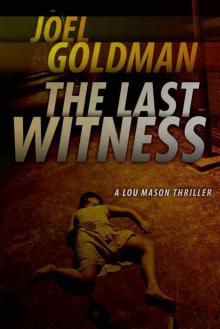 The last witness lm-2
The last witness lm-2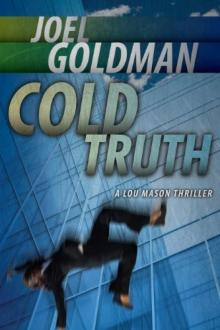 Cold Truth
Cold Truth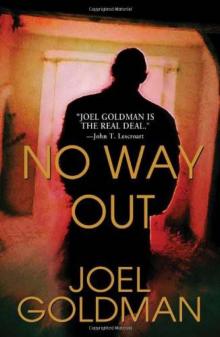 No Way Out (2010)
No Way Out (2010)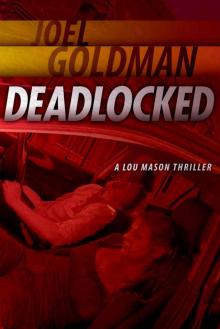 Deadlocked (Lou Mason Thrillers)
Deadlocked (Lou Mason Thrillers)![[Lou Mason 01.0] Motion to Kill Read online](http://i1.bookreadfree.com/i1/03/24/lou_mason_01_0_motion_to_kill_preview.jpg) [Lou Mason 01.0] Motion to Kill
[Lou Mason 01.0] Motion to Kill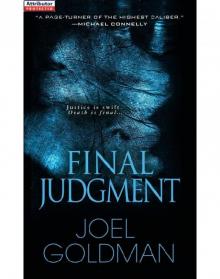 Final Judgment
Final Judgment Stone Cold
Stone Cold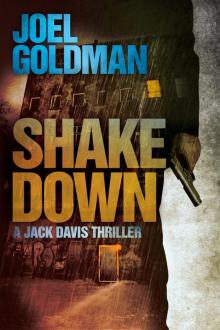 Shakedown
Shakedown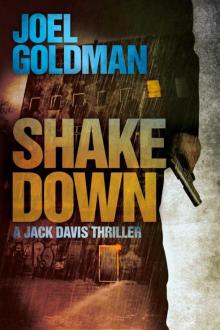 Shakedown jd-1
Shakedown jd-1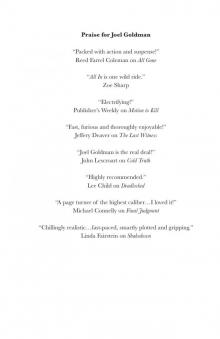 All Gone
All Gone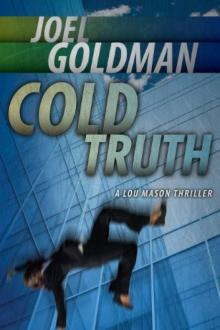 Cold truth lm-3
Cold truth lm-3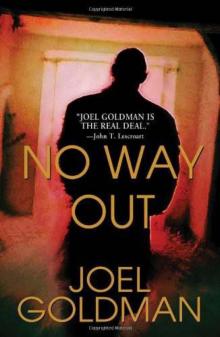 No way out jd-2
No way out jd-2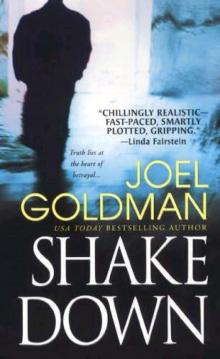 Jack Davis Mystery - 01 - Shakedown
Jack Davis Mystery - 01 - Shakedown Stone Cold as-1
Stone Cold as-1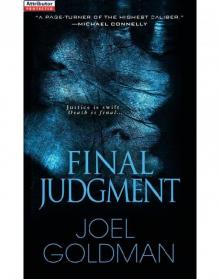 Final judgment lm-5
Final judgment lm-5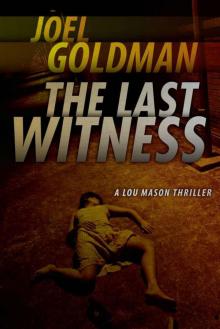 Lou Mason Mystery - 02 - The Last Witness
Lou Mason Mystery - 02 - The Last Witness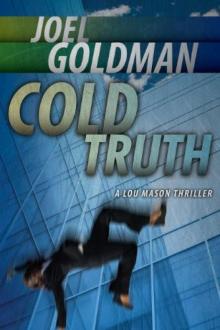 Lou Mason Mystery 03-Cold Truth
Lou Mason Mystery 03-Cold Truth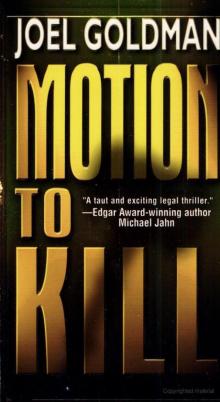 Motion to Kill
Motion to Kill Die, Lover, Die!
Die, Lover, Die!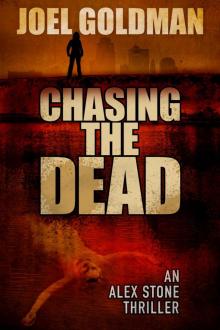 Chasing The Dead (An Alex Stone Thriller)
Chasing The Dead (An Alex Stone Thriller)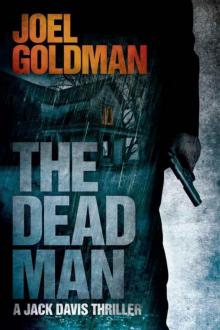 The Dead Man
The Dead Man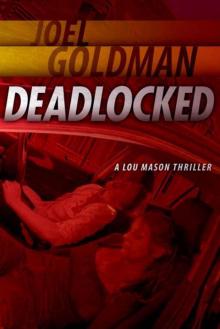 Deadlocked lm-4
Deadlocked lm-4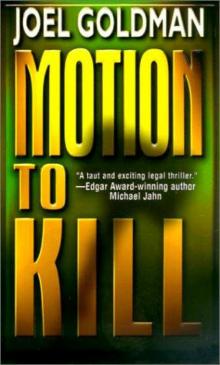 Lou Mason Mystery - 01 - Motion to Kill
Lou Mason Mystery - 01 - Motion to Kill Die, lover, die
Die, lover, die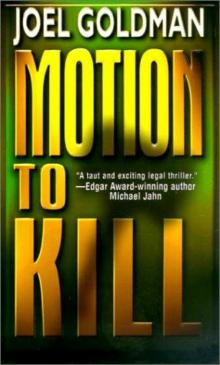 Motion to Kill lm-1
Motion to Kill lm-1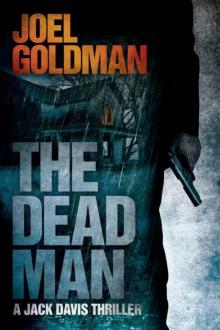 The Dead Man jd-3
The Dead Man jd-3